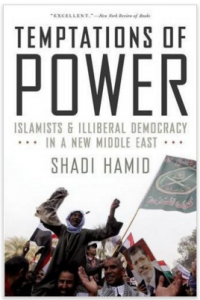Podcast: Embed
My friend Angie Gad joins me for episode 68 of Covert Contact to discuss growing up as a first generation Egyptian-American Muslim. We cover a lot of ground in this episode including her family’s struggle to maintain and establish roots in two very different worlds, her own challenges doing the same, her efforts to find common ground and acceptance from the sometimes suspicious or fearful communities she bridges, and how this has informed her work as a Middle East and terrorism analyst.
Angie has managed to navigate contradictory social, family, and religious pressures and then leverage that experience to serve her community and country. It is in many ways a quintessentially American story. It’s certainly a story that many first generation Americans, and immigrants, can relate to. But it’s also a story that Americans seem to be increasingly turning their backs on and that is why I decided to share it here.
